This is my entry for the 1945-1950 Naval Aviation Challenge.
ALTERNATE PAINT SCHEME/LOWER PART COUNT VERSION - this is the "Prototype" paint scheme with a fair bit less parts. It still retains all functionalities, including the cockpit with uncageable gunsight, so it's still got over 200 parts and a bit of pistons/rotators, but should be playable on mobile devices without much issue. Let me know if this is not the case.
Worthy of note, I have finally managed to make a decent-ish landing gear that can be safely launched from catapults at max power and kind of tolerate somewhat rough landings, though it still bounces more than what I'd like. It's been a blast to repeatedly drop this thing on the carrier's deck. I hope you guys have as much fun with it as I did!
Controls and Notes
AG 1: Airbrakes
AG 2: Jettison External Fuel Tanks
AG 5: Uncage Gunsight (See: Note 1)
AG 6: vacant for future weapon additions
AG 7: Tail Hook
AG 7 + VTOL DOWN: Fold Wings
AG 8: Nav Lights On/Off
VTOL UP: Flaps
Trim: Trim
Brake: Spoilers
NOTE 1: GUNSIGHT OPERATION
This aircraft features an illuminated gunsight reticle for day and nighttime use. When you step into the aircraft, the gunsight is caged, that is, it is locked in its position, aligned with the aircraft's forward axis.
By pressing AG 5, you can uncage the gunsight. Uncaging the gunsight will allow the reticle to move as you pitch the aircraft. Note that this happens in the pitch axis only, and since it's not a real gyroscopic gunsight, it doesn't actually enable you to accurately lead a target you're pursuing, though I have tried to somewhat align it with the trajectory of the rounds. Consider it something more cosmetic than anything else.

Gunsight in central position. Note the white indicator light, meaning the sight is already uncaged.

Firing guns at maximum performance turn.
NOTE 2: SimplePlanes shenanigans: engine power was adjusted to provide speed compatible with jet aircraft of the era at low to medium-low altitudes. At high altitudes, performance might be excessive as a result, and to preserve good low-speed handling this aircraft might turn a little bit too well at high speed.
NOTE 3: COCKPIT LIGHTS

Backstory

The S.Ca. 162 Marreco (Domestic Duck, Call Duck) is a jet-powered carrierborne fighter-bomber developed by Socrux in the late 1940's. Having first flown in 1947 and being introduced in service in late 1949, it proved to be a reliable aircraft, and though it was soon superseded in the fighter role by swept-wing designs, it continued to serve as a strike aircraft into the late 60's.

The very first prototype touches down after its first flight. Notice the lack of some features present in production models.

Late prototype aircraft flying low over the ocean.

Production model waiting to be shipped out to its unit.
The first carrierborne jet designed by Socrux, considerable effort was spent to make the plane as sturdy and easy to maintain as possible in field conditions aboard aircraft carriers. Its heavy-duty landing gear is largely credited as being the one implement that made the aircraft successful as a naval fighter, and its relatively short landing gear allowed ground crew easy access to most crucial components.

A Ca. 162 performs a carrier landing

Marreco on its natural habitat
The canopy is placed near the nose; visibility is not stellar, but it is a significant upgrade over previous designs. The pilot is provided with a gyro gunsight for air-to-air combat, and has four nose-mounted 20mm revolver cannons at his disposal. Additionally, the aircraft may be armed with a variety of bombs and rockets, though usually external fuel tanks are carried to increase operational range; a typical light strike loadout consists of two external tanks and eight unguided rockets mounted in rails under the outboard wings. Later variants would recieve a simple rangefinding/gun-laying radar on the nose.

Marreco showing off its rockets

Business end of the 20mm guns

A Ca. 162 strafes ground targets with its 20mm guns
Featuring wing-root intakes somewhat reminescent of British designs, the Marreco is powered by a single large axial-flow turbojet engine. Its placement required the straight wings to be moved further aft, which along with the "stubby" appearance given by the rounded nose and exhaust tube, gave the aircraft a characteristic look. The use of a single engine raised concerns about safety, but reduced maintenance requirements, a fact aided by the engine's placement, which could be easily accessed by removing the craft's lower tail section. In service, the engine proved to be acceptably reliable.

The aircraft's stubby profile
The aircraft saw several upgrades during its service life, notably the reinforcement of wing structure to allow for more hardpoints and a higher useful payload, as well as the addition of short-range air-to-air missiles. Shown here is one of the very first production aircraft, lacking in these later bells and whistles, flown by "Copas" (Hearts) flight of Naval Attack Squadron 2 "Poker", based on the NAeL Minas Gerais.


Gallery:









Specifications
Spotlights
- Mustang51 5.3 years ago
- mikoyanster 5.3 years ago
- BowtheAvali 5.3 years ago
- Armyguy1534 5.3 years ago
General Characteristics
- Predecessor 1945-1950 Naval Aviation Challenge (Closed)
- Created On Windows
- Wingspan 42.9ft (13.1m)
- Length 37.6ft (11.5m)
- Height 13.6ft (4.1m)
- Empty Weight 6,238lbs (2,829kg)
- Loaded Weight 11,723lbs (5,317kg)
Performance
- Power/Weight Ratio 1.725
- Wing Loading 33.3lbs/ft2 (162.4kg/m2)
- Wing Area 352.5ft2 (32.8m2)
- Drag Points 3886
Parts
- Number of Parts 275
- Control Surfaces 7
- Performance Cost 1,354

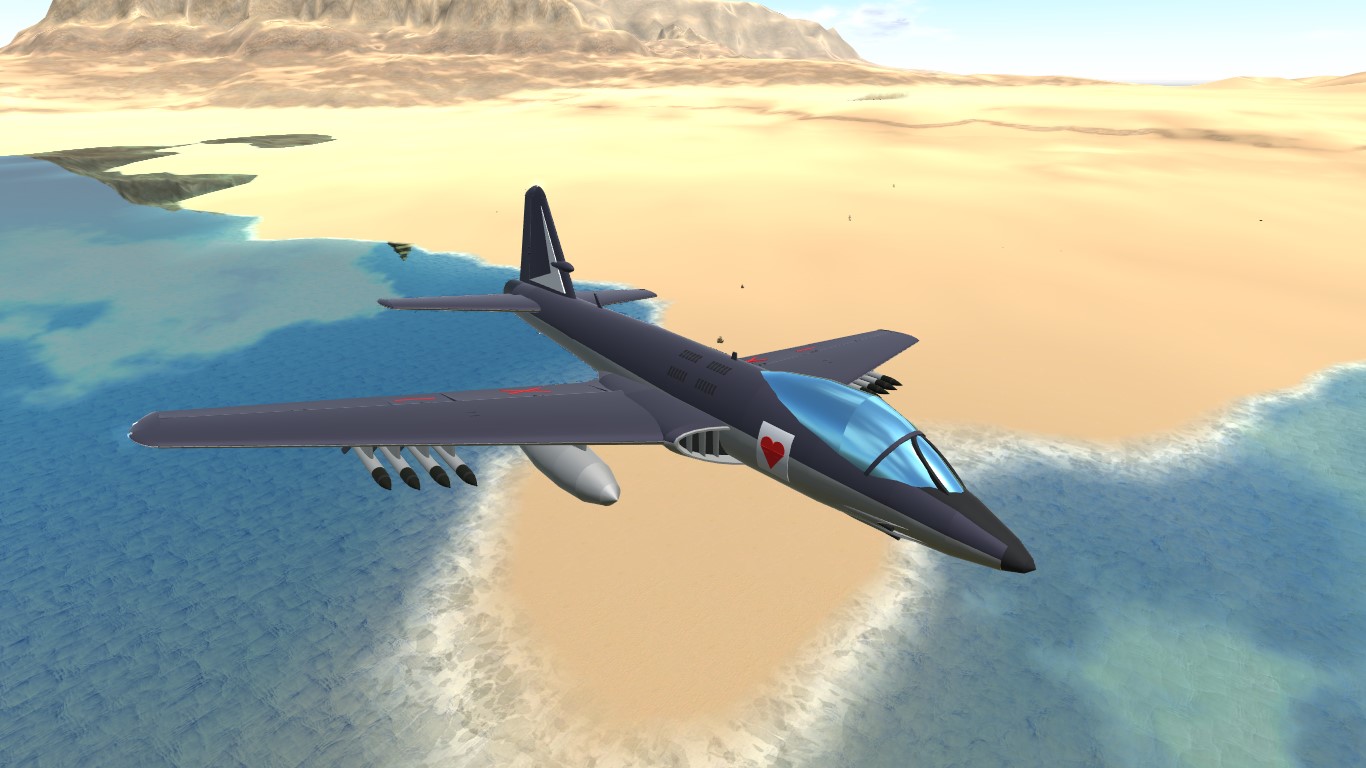
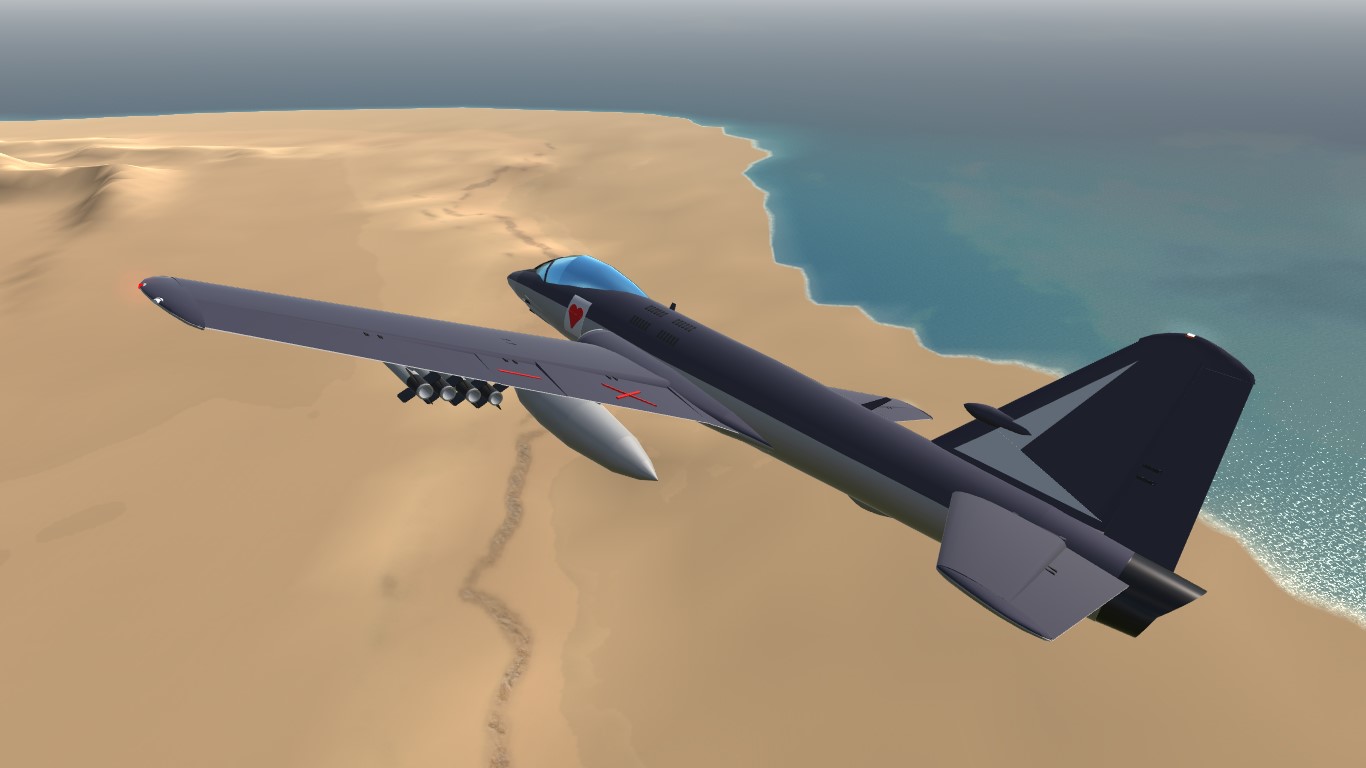
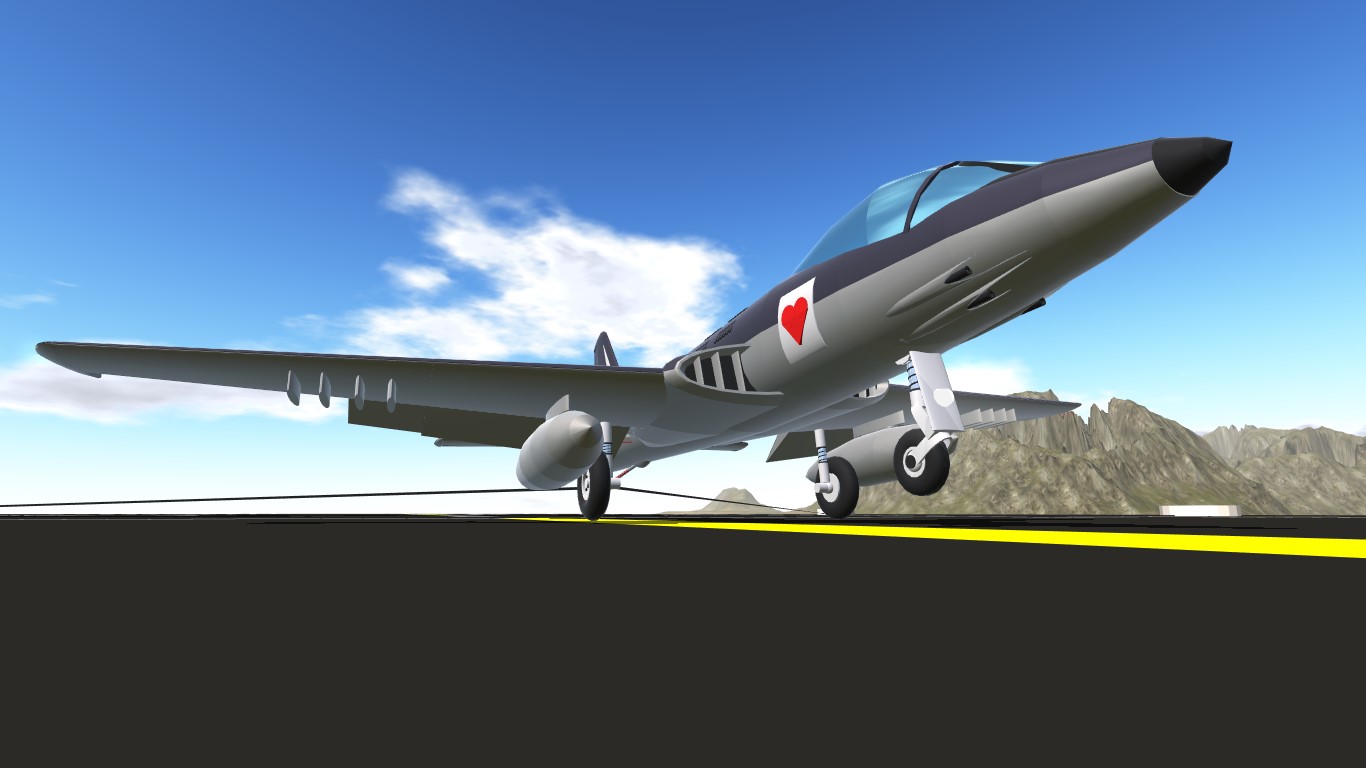
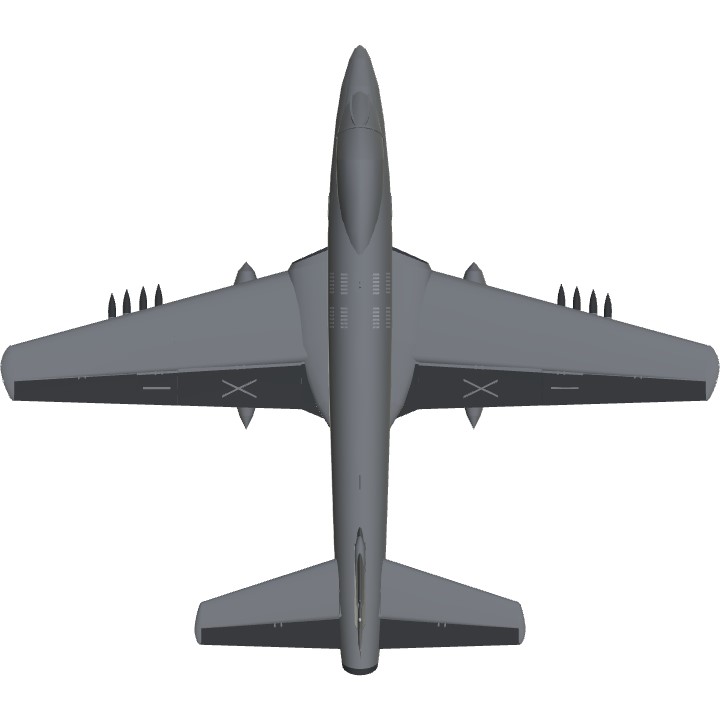
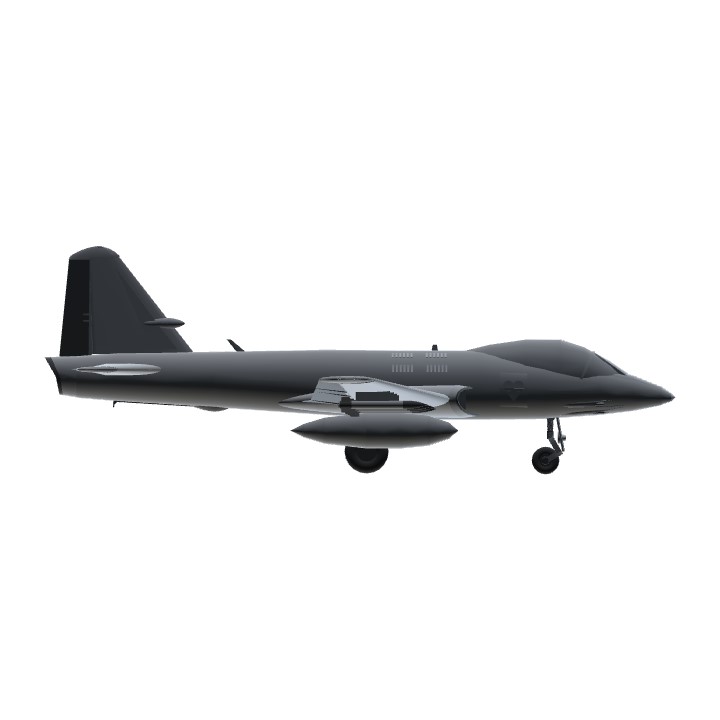
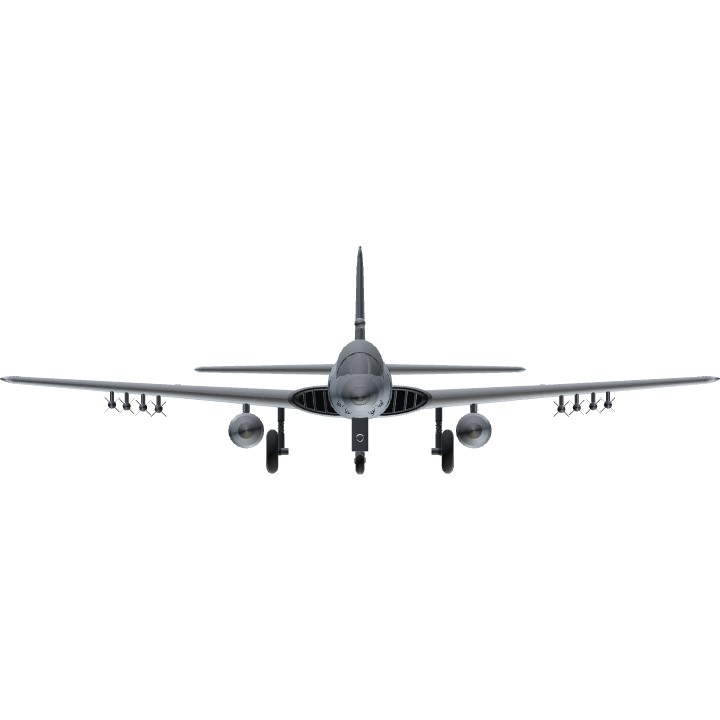
Here is your result for this aircraft!
Design: 17/20
Functionality: 7/10
Performance: 10/15
Build quality: 13/15
Paint scheme: 4/5
Personal opinion 5/5
Overall: 56/70 (5 upvotes!)
@FlyingHueman that’s great! I love it when an idea like that just comes at a random moment hahaha. Great nose art too!
@Mustang51 Thanks! The Sea Hawk was indeed my main inspiration for this plane, especially on the nose/intakes and paint scheme. The wings and the rear section I just sketched on a napkin, lel.
Absolutely brilliant build! It reminds me a lot of the sea hawk. Thank you very much for this great entry to the challenge